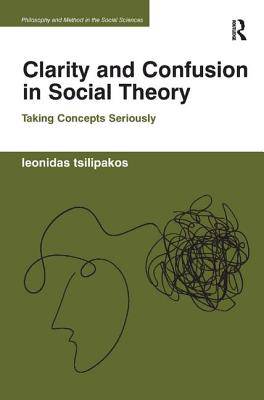
- Retrait gratuit dans votre magasin Club
- 7.000.000 titres dans notre catalogue
- Payer en toute sécurité
- Toujours un magasin près de chez vous
- Retrait gratuit dans votre magasin Club
- 7.000.0000 titres dans notre catalogue
- Payer en toute sécurité
- Toujours un magasin près de chez vous
195,95 €
+ 391 points
Format
Description
Departing from a concern with certain 'hard' problems in social theory and focusing instead on the theoretical strategies employed in their solution, especially on how these strategies depend on what the author calls the theoretical attitude towards language, this book considers whether these strategies, far from being indispensable guides to thinking, might in fact lead social theorists to misunderstand the concepts constitutive of social life. Making use of the insights and practice of Ordinary Language Philosophy, understood as encompassing the work of Wittgenstein, Ryle, Austin and their followers, Clarity and Confusion in Social Theory reveals the profound logical flaws in some of the central methodological procedures often employed in social theory for dealing with concepts, offering alternative approaches to social scientists and philosophers for tackling the conceptual issues that have so bedevilled social science from its inception. A lucid explication of Ordinary Language Philosophy and the potential that it offers for deepening and re-orienting theoretical work in the social sciences, this volume, apart from being a challenge to the influential Critical Realist paradigm, constitutes a radical critique of social theoretical reason. As such, it will appeal to social theorists and philosophers of social science, those with interests in research methods and theory construction, and anyone interested in thinking clearly about society.
Spécifications
Parties prenantes
- Auteur(s) :
- Editeur:
Contenu
- Nombre de pages :
- 186
- Langue:
- Anglais
- Collection :
Caractéristiques
- EAN:
- 9781472432407
- Date de parution :
- 28-01-15
- Format:
- Livre relié
- Format numérique:
- Genaaid
- Dimensions :
- 156 mm x 233 mm
- Poids :
- 339 g

Les avis
Nous publions uniquement les avis qui respectent les conditions requises. Consultez nos conditions pour les avis.






